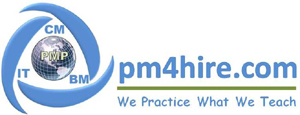

Teaching & Mentoring Courses
The courses in this section are all focused on developing the skills to help others acquire knowledge and abilities in specific subject areas. The ability to teach or coach or mentor individuals can add value to you as you work in a corporation – it does not have to be restricted to an academic setting where these skills become bread-and-butter qualifications for getting the job done. Not all teaching is academic, as work skills may be demonstrated and subsequently a coaching style may be used to help students learn by practicing those skills. Not all requirements are the same, nor are the expectations of educational establishment from universities to community colleges to private colleges and vocational schools, yet all have the common objective of helping people learn new things that will help them in their career. What we have assembled here are a number of skill sets that hone a different dimension of delivering any form of training, with the idea that either you will be delivering courses similar to those we offer, or you may become engaged in company-specific training, or customer training in company products, or many other kinds of settings where you need to understand not only the subject matter, but also the ways to deliver that subject matter so people will learn from you.
Teaching Skills BTTM_TEA
Teaching is the formal presentation of information for the purpose of helping students to learn new knowledge or skills. Our teaching program is based on a proven model for adult education honed in a career college setting, a format generally applicable in most business situations. The core knowledge is dependent on the subject matter; the presentation has to be adapted to the student demographics that apply. What this course covered are the basic concepts of how your presentation should be structured, and how you can engage the students so that they can learn more effectively. It is important to pay attention to the fact that most textbooks are written to accommodate students at a university level that have a full semester to master the material, as opposed to teaching the most important information in a much shorter timeframe and a context in which there is not as much opportunities for students to engage in research.
Mentoring Skills BTTM_MEN
Mentoring is a process for self-enrichment and promoting a profession or trade. Typically we have a mentor transfer experiential knowledge to a protégé (who often has a substantial amount of practical experience and book knowledge) so that the pieces of the puzzle start to fit together. The goal is to make the knowledge whole, so that the protégé has a clear picture of how the subject knowledge has evolved into practical steps and stages that then make sense. The intent is that the protégé benefits from a transfer (or sharing) of experience from someone who is able to help them put that experience or knowledge to work. Mentoring can evolve into a longer-term arrangement, where the mentor is a de-facto “service provider” and the protégé is the one driving the learning process with their express need for information. A single mentor can work with a larger group of protégés but we need to remain aware of the availability to provide help as required.
Coaching Skills BTTM_COA
Coaching is based on working closely with an individual to help them improve their abilities, with the assumption that they already know what they need to know. The athletic coach cannot give an athlete the capabilities that have to be innate, but they can give the athlete feedback on their technique to make them better in many different respects. The coach does not have to be a top athlete in their own right, but they have to understand what the athlete needs to get better. In business, or in life skills, coaching involves a similar role of helping clients become better at what they do. Many people have abilities but are hesitant to move forward without reassurance, and a skillful coach can provide the encouragement and point at accomplishments to help them get on with life or flourish in their career. The importance of coaching is that at some point clients must be expected to progress independently, rather than to become dependent on the coach.
Coaches normally do not show their client how to perform specific tasks but they may review or comment on the performance and suggest ways in which the client can do better. They help the client review their accomplishment, help draw up action plans, and follow-up to make sure that the action plans are implemented. Coaching can cover a much broader range of professional or personal needs and range from a formal, professional arrangement to an informal relationship between two people, of whom one has more experience and expertise than the other and offers advice and guidance as the other learns. This differs from mentoring by focusing on competency in specific skills or tasks, as opposed to general overall development that a mentor provides.
Seminar & Workshop Presenting Skills BTTM_SWP
A well-known comedian once quipped that many people would rather be in the gasket than to deliver the eulogy: many people are afraid of public speaking, but if you want to develop those skills you will become in demand to share knowledge and experience with your audience. Based on developing many technical solutions and methodologies in project management, my career has reached the inevitable point where the most logical next step is to teach these concepts in the form of seminars. We can approach seminars like projects – a structured series of initiatives that provide training opportunities to others at different levels in their career.
Teaching concepts like project management is much different from traditional learning, in that you do not talk in absolutes, but share experience that the audience hopefully can benefit from and blend with their own experience and knowledge used for their area of specialization. This is a crucial difference to keep in mind for any training program. Over time you learn that different people have different feelings about learning: a major shift from that formal curriculum to using the presentation materials as a guide while encouraging dialog and audience contributions that showcase what they have learned over the years. Learning is one of my motivators for public speaking and leading seminars, using a facilitation style to draw out opportunities and encourage people to speak up and not feel foolish asking questions that others answer off-the-cuff.
Seminar & Workshop Organizating Skills BTTM_SWO
Even if you do not see yourself as capable of standing in front of a room full of people to deliver a seminar, or a workshop, that does not mean you cannot be an active participant in the process of organizing events and hiring a presenter to do the actual delivery for you. From experience we know it takes effort, and familiarity with local facilities, to get everything arranged so that you can actually put on a seminar. There are ways to achieve that with low risk and low investment, but with potentially high returns on investment after you have paid for the facilities, the food, and the course presenter. If you feel dissatisfied with the lack of events in your community this course will step you through the typical scenarios for how you can put on an event of your own.
 |
|